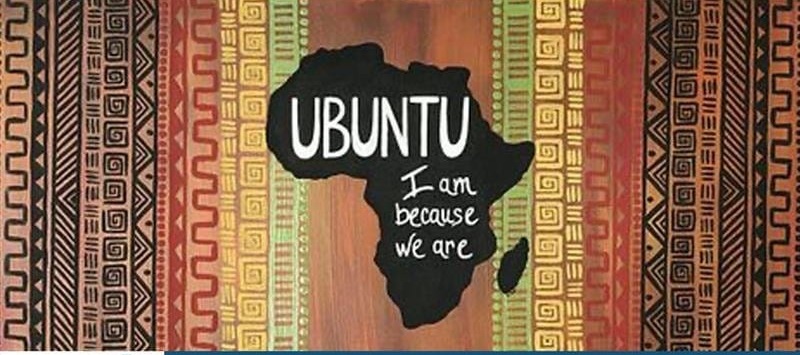According to ancient Kamite (African) philosophies, man must by his actions maintain the balance of the cosmos in all senses. This balance is observed in nature, in the sky, but especially in the body in its astral, mental and physical dimensions. For the ancient Kamites, every illness was a mental disorder translated into a physical ailment.
Maat and Ubuntu
Maat was the ancient Egyptian concept of balance, order, harmony, laws, morality and justice. It was personified by a goddess responsible for the arrangement of the constellations and seasons, who upheld cosmic order against chaos.
Her 42 commandments guided the people in all aspects of society, enabling the Egyptians to build pyramids, temples and cities that reproduced the map of the heavens to remain in tune with the creation.
Maat can be said to form the basis of Ubuntu, the African philosophy characterized by an attitude of benevolence, openness, hospitality and compassion, empathy and a desire to share with others. In short: I am because we are.
We find this philosophy in many African peoples and with different names: the Bambara people for example called it Maya (solidarity), in Kenya it was called Arambe (developing together) and in the Bantu language it could be translated as “humanity.” Even today, the toguna of the Dogon is the most important building in every village; it replicates the house in which the original ancestors gathered, is an area in which to discuss community problems and administer justice, is based on solidarity, and is open to foreigners and orphans
Ubuntu and the environment
In the temples of the Kingdom of Kush we see hunting scenes with various deities, but always with balance; in fact, each animal possessed divine characteristics. This allowed a world of abundance, where people hunted together, worked together, danced and sang together, in a horizontal society, even though the king was surrounded by other powers. Even today, the Dogon toguna is the most important building in every village; it replicates the house where the original ancestors gathered and is open to foreigners and orphans.
Ubuntu urges respect for plants because they heal and nourish humanity and are used to connect with deities. In fact, it is no coincidence that there are many sacred trees in Africa.
Ubuntu and social
Sharing is an important part of Ubuntu. I once found myself eating together with some elderly people; they explained to me that this gesture reaffirms the value of solidarity. Indeed, in Africa, the elderly were not afraid of loneliness because they were surrounded by their loved ones and were a reference for the young.
Today our world increasingly based on individualism is in crisis; we need to ask ourselves how we got to this situation and at this point we will find that Africa, like other civilizations, has developed an alternative way of living in a more balanced society.
The teachings of Ubuntu not only come from the past, but can help us resolve many current conflicts, as happened for example in South Africa. It was this philosophy that inspired Nelson Mandela in his long struggle against the oppression of his people. Ubuntu made it possible to emerge from the vicious apartheid regime without unleashing vendettas and bloodbaths, creating the extraordinary instrument of the Truth and Reconciliation Commission, an example later followed by other peoples.
In short, we are responsible for the current chaos, and Ubuntu can help us get out of it together.










